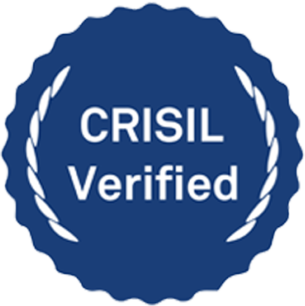Legal Check and Documentation for Resale Property: Your Definitive Guide
A Verification and Due Diligence Checklist
Purchasing a resale property in India is an exciting venture, but it comes with its unique set of challenges. Among these, the legal check and documentation process stand out as crucial steps. Ensuring that the property you're buying has a clear title and the necessary legal documentation can save you from potential complications in the future. In this guide, we'll explore the intricacies of conducting a legal check and handling documentation when buying a resale property.
1. Due Diligence: The Foundation of Legal Check
The due diligence process is where you start. It involves thorough research and investigation into the property's history. During this stage, you should:
- Verify Property Ownership: Ensure that the seller is the legal owner of the property and holds the right to sell it.
- Check Encumbrances: Look for any existing encumbrances, such as mortgages or liens, which may affect the property's title.
- Inspect the Property Title: Review the property's title deeds, including past transactions and legal disputes.
2. Legal Documents Required
Gathering the essential legal documents is a significant part of this process. You'll need:
- Sale Agreement: This outlines the terms of the sale and is a preliminary agreement between the buyer and the seller.
- Sale Deed: The legal document that formally transfers ownership of the property from the seller to the buyer.
- Encumbrance Certificate: A document that provides details about any encumbrances on the property.
- No Objection Certificate (NOC): In cases of apartment complexes or housing societies, an NOC from the society is often required.
- Occupancy Certificate: Ensures that the property complies with local building codes and is suitable for occupancy.
3. Legal Expert Assistance
Engaging a legal expert is highly recommended when dealing with the legal check and documentation process. A property lawyer or advocate experienced in real estate transactions can guide you through the complexities, help with document verification, and ensure that the transaction is legally sound.
4. Verification and Due Diligence Checklist
A checklist can be beneficial in ensuring you cover all the crucial aspects during the legal check process. This may include:
- Verification of the seller's identity and ownership.
- Check for any pending legal disputes.
- Examination of past property transactions.
- Validation of property's land use and zoning.
Verification of property tax receipts and dues.
5. Title Clearance
The ultimate goal of the legal check is to ascertain the title's clear and unencumbered nature. Once this is confirmed, you can proceed with confidence.
6. Documentation Verification
Carefully scrutinize the legal documents for any discrepancies, errors, or omissions. It's important to ensure that these documents accurately reflect the terms and conditions of the property transaction.
Conclusion
The legal check and documentation process when buying a resale property in India can be intricate, but it's an indispensable part of safeguarding your investment. By conducting due diligence, engaging a legal expert, and meticulously reviewing the required documentation, you can mitigate risks and ensure that your property purchase is a sound and legally secure decision. Remember, the time and effort invested in these steps are a valuable investment in your peace of mind and financial well-being.











